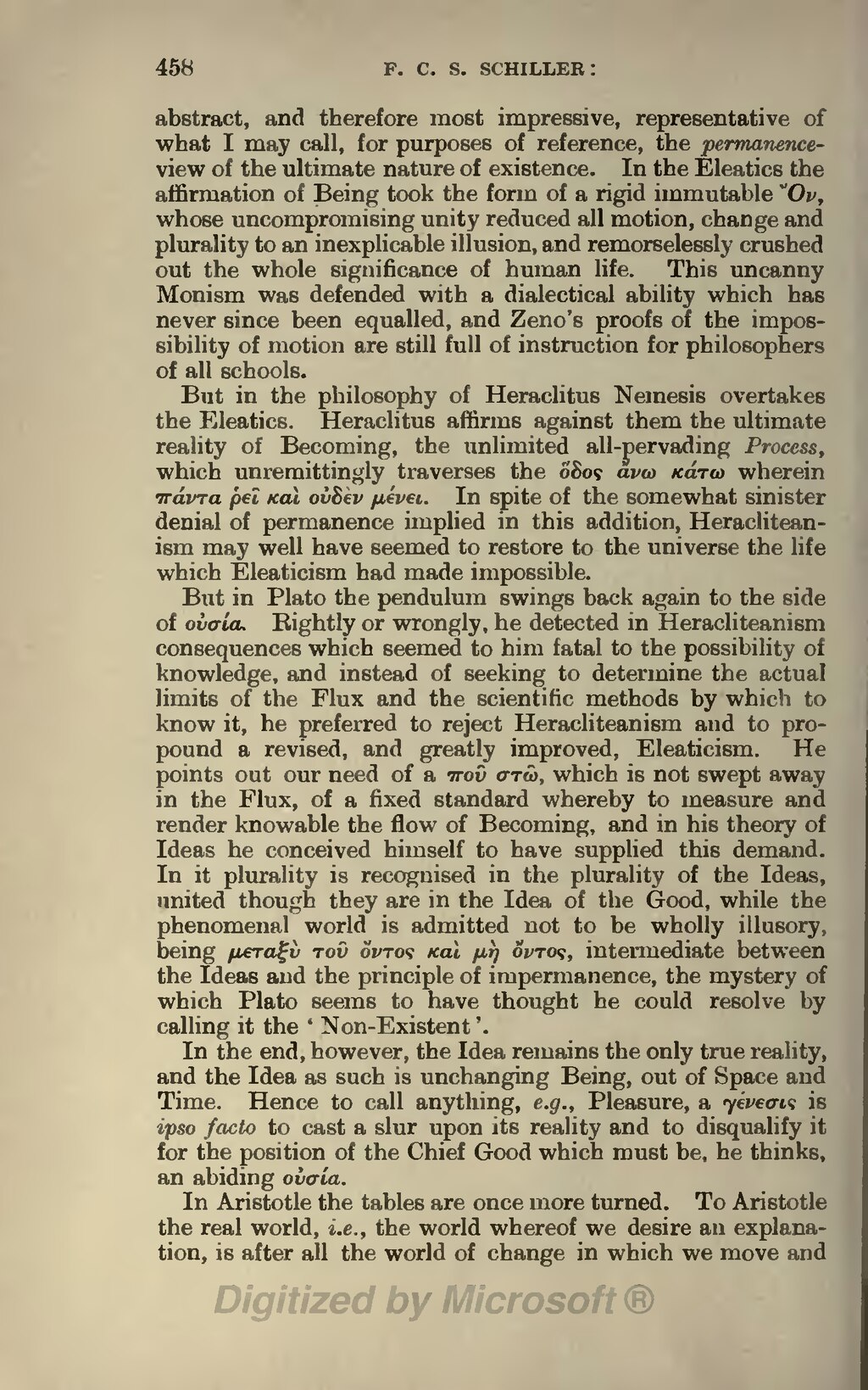abstract, and therefore most impressive, representative of what I may call, for purposes of reference, the permanence-view of the ultimate nature of existence. In the Eleatics the affirmation of Being took the form of a rigid immutable Ὄν, whose uncompromising unity reduced all motion, change and plurality to an inexplicable illusion, and remorselessly crushed out the whole significance of human life. This uncanny Monism was defended with a dialectical ability which has never since been equalled, and Zeno’s proofs of the impossibility of motion are still full of instruction for philosophers of all schools.
But in the philosophy of Heraclitus Nemesis overtakes the Eleatics. Heraclitus affirms against them the ultimate reality of Becoming, the unlimited all-pervading Process, which unremittingly traverses the ὅδος ἄνω κάτω wherein πάντα ῥεῖ καὶ οὐδὲν μένει. In spite of the somewhat sinister denial of permanence implied in this addition, Heracliteanism may well have seemed to restore to the universe the life which Eleaticism had made impossible.
But in Plato the pendulum swings back again to the side of οὐσία. Rightly or wrongly, he detected in Heracliteanism consequences which seemed to him fatal to the possibility of knowledge, and instead of seeking to determine the actual limits of the Flux and the scientific methods by which to know it, he preferred to reject Heracliteanism and to propound a revised, and greatly improved, Eleaticism. He points out our need of a ποῦ στῶ, which is not swept away in the Flux, of a fixed standard whereby to measure and render knowable the flow of Becoming, and in his theory of Ideas he conceived himself to have supplied this demand. In it plurality is recognised in the plurality of the Ideas, united though they are in the Idea of the Good, while the phenomenal world is admitted not to be wholly illusory, being μεταξὺ τοῦ ὄντος καὶ μὴ ὄντος, intermediate between the Ideas and the principle of impermanence, the mystery of which Plato seems to have thought he could resolve by calling it the ‘Non-Existent’.
In the end, however, the Idea remains the only true reality, and the Idea as such is unchanging Being, out of Space and Time. Hence to call anything, e.g., Pleasure, a γένεσις is ipso facto to cast a slur upon its reality and to disqualify it for the position of the Chief Good which must be, he thinks, an abiding οὐσία.
In Aristotle the tables are once more turned. To Aristotle the real world, i.e., the world whereof we desire an explanation, is after all the world of change in which we move and
